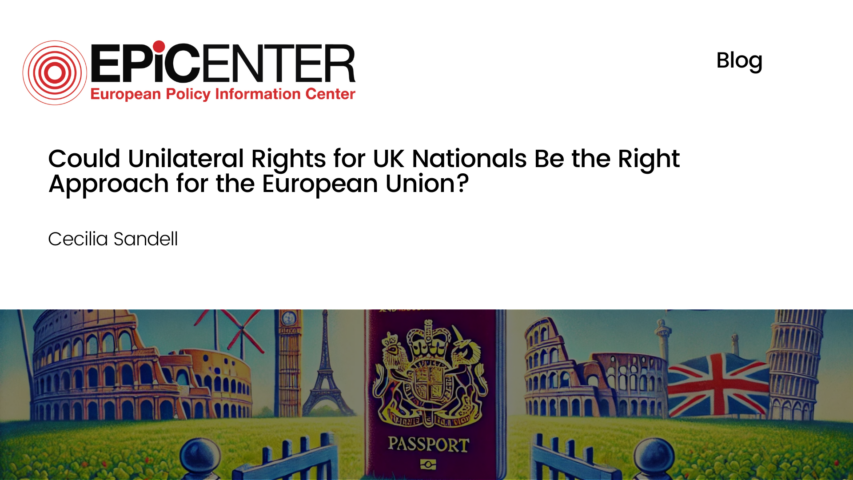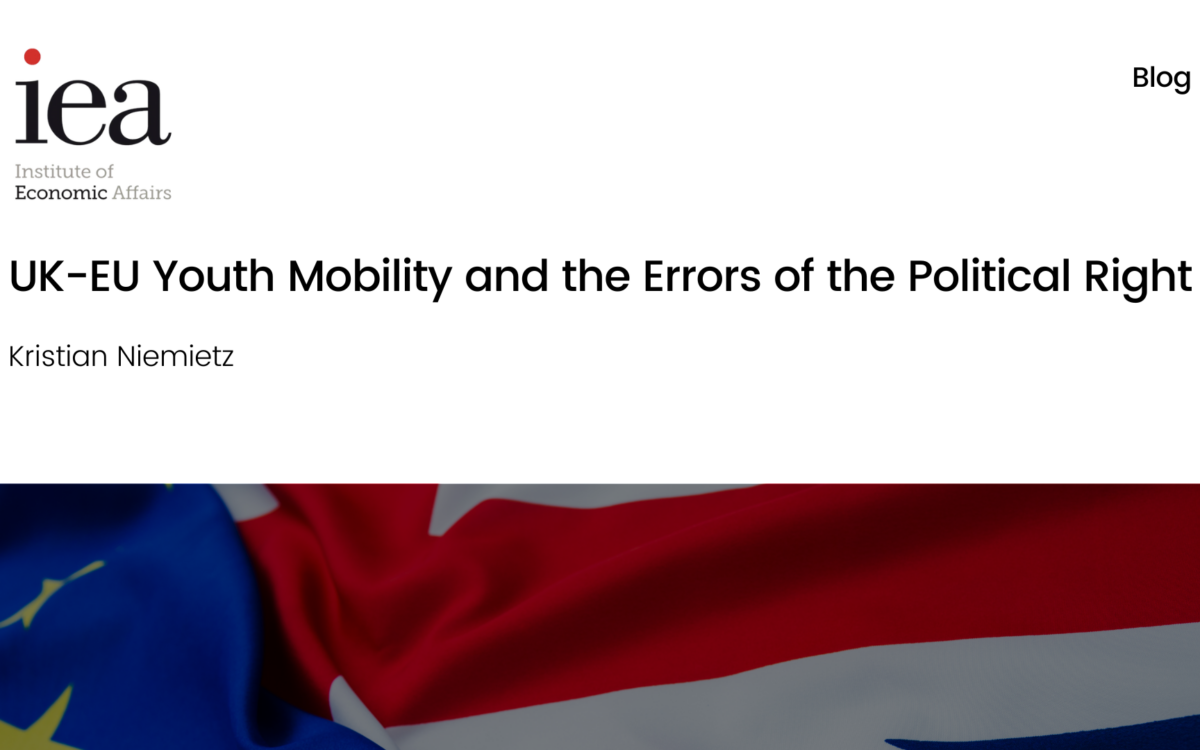Could Unilateral Rights for UK Nationals Be the Right Approach for the European Union?

Could Unilateral Rights for UK Nationals Be the Right Approach for the European Union?
Cecilia Sandell // 11 July 2017
Since the Brexit referendum in June 2016, the debates regarding citizens’ rights have been ubiquitous. The 3Million Movement has until now strongly emphasised the uncertainty and anxiety felt by EU citizens in the UK and has been a forceful advocate for guaranteeing their right to remain even after the country’s departure from the EU. On the European continent, UK nationals have raised similar concerns and coordinated their efforts to influence both European institutions and the UK government through the coalition British in Europe.
Over the last 12 months, however, the main focus has undoubtedly been on the EU citizens living in the UK. This might seem legitimate considering there are 3.3 million EU nationals in the UK and only 1.2 million UK nationals in the rest of the EU. The question is if all parties have something to gain by switching this attention.
On 24 May the European Commission published its negotiation paper “Essential Principles of Citizens Rights”, which consists of a comprehensive offer, based upon European Union law. In it, the Commission offers the same level of protection for UK citizens in the EU27 on the date of withdrawal as they have today — including “the right to acquire permanent residence after a continuous period of five years of legal residence”. The Commission also states that UK citizens living in the EU27 should not have to prove their rights to remain immediately after Brexit. On top of this, the EU suggests that family members of UK citizens should be able to join the holder of these rights at any point after “the date of entry into force of the withdrawal agreement”. Finally, the Commission’s paper calls upon the British government to extend the same offer to EU citizens living in the UK.
On 26 June, the UK government responded with its policy paper “The United Kingdom´s exit from the European Unions: safeguarding the position of EU citizens living in the UK and UK nationals living in the EU”. The proposal offers similar rights to EU citizens in the UK – guaranteeing the rights of EU nationals currently living in the UK and their right to apply for “settled status” after a continuous five year period in the UK. The UK government also proposed a stream-lined application process with tailored eligibility criteria that no longer would require evidence that economically inactive EU citizens have previously held “comprehensive sickness insurance” in order to be considered a continuously resident.
When comparing the two proposals, the two main issues of disagreement are related to the role the European Court of Justice should have on citizens’ rights and the so called “cut-off date”. With regards to the cut-off date, the EU27 calls for it to be on 29 March 2019, whilst the UK has stated that the date could be no earlier than 29 March 2017, the day Article 50 was formally triggered, and no later than the date of the UK´s withdrawal from the EU.
These points of divergence were highlighted again yesterday, when a large cross-party group of European parliamentarians harshly criticised the UK´s offer. The MEP´s argued that the proposed policies would created a “second-class citizenship” for EU nationals in the UK. They also insisted that the ECJ should retain oversight of the Brexit process and threatened to veto a deal that did not meet their demands, even if it was agreed between the UK Government and the remaining EU member states.
Despite these points of divergence and the many political threats, the two proposals are surprisingly consistent. Something that has some people asking if a deal might be fairly easy to reach after all. And one can’t help but wonder what would happen if the European Commission chief negotiator Michael Barnier and his team were to offer unilateral rights to UK nationals. Would that force Prime Minister Theresa May to do the same for EU nationals in the UK?
Yes, probably it would.
EPICENTER publications and contributions from our member think tanks are designed to promote the discussion of economic issues and the role of markets in solving economic and social problems. As with all EPICENTER publications, the views expressed here are those of the author and not EPICENTER or its member think tanks (which have no corporate view).



